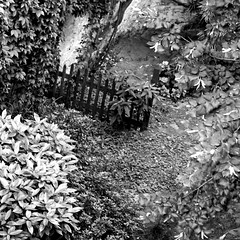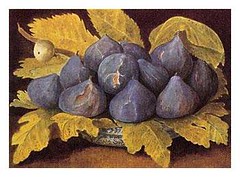The awful shadow of some unseen Power
Floats though unseen among us; visiting
This various world with as inconstant wing
As summer winds that creep from flower to flower;
Like moonbeams that behind some piny mountain shower,
It visits with inconstant glance
Each human heart and countenance;
Like hues and harmonies of evening,
Like clouds in starlight widely spread,
Like memory of music fled,
Like aught that for its grace may be
Dear, and yet dearer for its mystery.
Spirit of BEAUTY, that dost consecrate
With thine own hues all thou dost shine upon
Of human thought or form, where art thou gone?
Why dost thou pass away and leave our state,
This dim vast vale of tears, vacant and desolate?
Ask why the sunlight not for ever
Weaves rainbows o'er yon mountain-river,
Why aught should fail and fade that once is shown,
Why fear and dream and death and birth
Cast on the daylight of this earth
Such gloom, why man has such a scope
For love and hate, despondency and hope?
No voice from some sublimer world hath ever
To sage or poet these responses given:
Therefore the names of Demon, Ghost, and Heaven,
Remain the records of their vain endeavour:
Frail spells whose utter'd charm might not avail to sever,
From all we hear and all we see,
Doubt, chance and mutability.
Thy light alone like mist o'er mountains driven,
Or music by the night-wind sent
Through strings of some still instrument,
Or moonlight on a midnight stream,
Gives grace and truth to life's unquiet dream.
Love, Hope, and Self-esteem, like clouds depart
And come, for some uncertain moments lent.
Man were immortal and omnipotent,
Didst thou, unknown and awful as thou art,
Keep with thy glorious train firm state within his heart.
Thou messenger of sympathies,
That wax and wane in lovers' eyes;
Thou, that to human thought art nourishment,
Like darkness to a dying flame!
Depart not as thy shadow came,
Depart not--lest the grave should be,
Like life and fear, a dark reality.
While yet a boy I sought for ghosts, and sped
Through many a listening chamber, cave and ruin,
And starlight wood, with fearful steps pursuing
Hopes of high talk with the departed dead.
I call'd on poisonous names with which our youth is fed;
I was not heard; I saw them not;
When musing deeply on the lot
Of life, at that sweet time when winds are wooing
All vital things that wake to bring
News of birds and blossoming,
Sudden, thy shadow fell on me;
I shriek'd, and clasp'd my hands in ecstasy!
I vow'd that I would dedicate my powers
To thee and thine: have I not kept the vow?
With beating heart and streaming eyes, even now
I call the phantoms of a thousand hours
Each from his voiceless grave: they have in vision'd bowers
Of studious zeal or love's delight
Outwatch'd with me the envious night:
They know that never joy illum'd my brow
Unlink'd with hope that thou wouldst free
This world from its dark slavery,
That thou, O awful LOVELINESS,
Wouldst give whate'er these words cannot express.
The day becomes more solemn and serene
When noon is past; there is a harmony
In autumn, and a lustre in its sky,
Which through the summer is not heard or seen,
As if it could not be, as if it had not been!
Thus let thy power, which like the truth
Of nature on my passive youth
Descended, to my onward life supply
Its calm, to one who worships thee,
And every form containing thee,
Whom, SPIRIT fair, thy spells did bind
To fear himself, and love all human kind.
Percy Bysshe ShelleyΣτο σημείωμά της στα ποιήματα το 1816, η Mary Shelley (σύζυγος του ποιητή) γράφει : " Πέρασε το καλοκαίρι στις ακτές της Λίμνης της Γενεύης. Ο "ύμνος στην πνευματική ομορφιά", συνελήφθη κατά τη διάρκεια του ταξιδιού του γύρω από την λίμνη με τον Λόρδο Byron."Ο όρος "intellectual" πρέπει να γίνει αντιληπτός ως "εγνωσμένη από το μυαλό, χωρίς την βοήθεια της φυσικής αίσθησης" (όπως γίνεται αντιληπτό και από τους δύο πρώτους στίχους).




